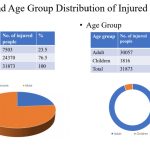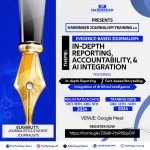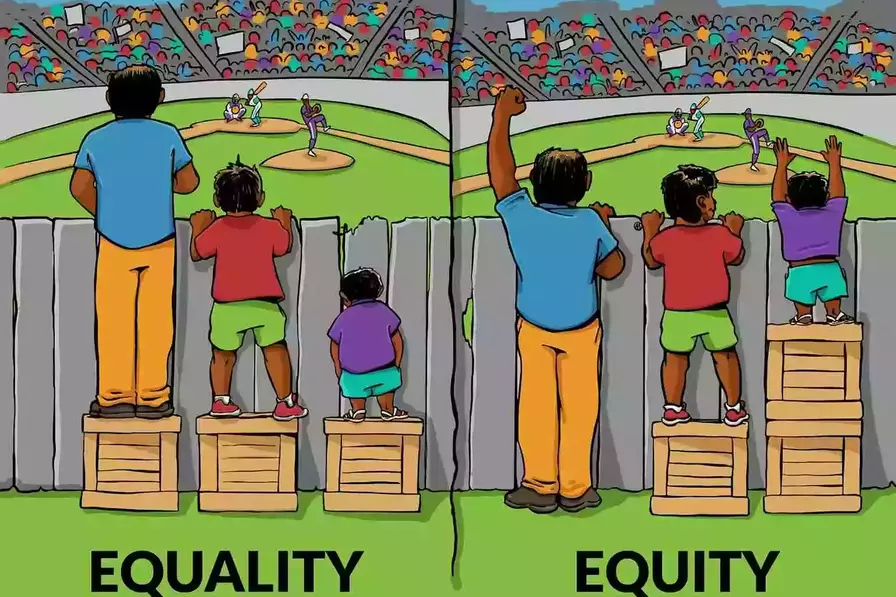Ismaila Biliaminu Manne
In today’s fast-paced and ever-changing world, where there are diverse and multi-notable industries that are selective of the human resources they want in their industry, the issue of whether personnel with skills or degrees are more valuable and will be giddy-up to become successful in the world has reached to a boiling point and become the hotly debated topics in every corner of the world, nationally and internationally.
Though being innovative and creative will enhance one’s life to have a better standard of living, it requires a person to have both the two categories “Skills and Degree,” however, the world is now gradually moving from degrees to skills due to the fast-paced changes in every human endeavor. When a company is looking for problems to solve, they look for a skillful person who has the experience of what they wanted for years and who has acquired skills rather than the degrees that they have obtained.
For this, many graduates who want to secure their future must work more on their skill set than their degrees. That is why extracurricular activities are highly encouraged for students to engage themselves while on campus, pursuing their education or degree. The rate at which people are acquiring skills is becoming alarming, and graduates need more skills to become tangible and not obsolete in the labour market and this current emerging world.
Like Reno Omokri said, “If you have a degree, you can still be poor. If you don’t have a degree, you can still be rich. But if you have a degree and a skill, you can hardly be poor. Nothing kills poverty like skills. Companies are looking for skilled workers, not degree workers.”
The pertinent question every undergraduate student should be continually asking is this: What are the new skills to learn to be relevant and better equipped in my career in this recent technical world? It is either you have skills, or you will be skewed out of opportunities because there are many opportunities across the globe. Still, they require skillful personnel rather than a certificate owner.
In most developed countries like the United States of America, there is a greater level of curriculum operation, which is related to the educational achievement of diverse capacity that helps transform and improve ideas, skills, and attitudes, which lead to their development and being a dominance of many countries in the world. Their technology improves their labour structures and technological innovations.
Skill: A response to unemployment challenges
To imitate this brave move for citizens’ well-being, the need for skills is an antidote during this 21st Century because technological advancement has become manifest and a testament that acquiring only a degree of knowledge would not suffice in human development and the digital world we are currently dwelling on. For instance, look at some decades ago when banks used human resources as the ‘Teller’ in the bank. Now, artificial intelligence (AI, ‘technology’) called ‘Automatic Teller Machine’ (ATM) has deprived the opportunity. AI machines are now shattering. Moreso, a concise recap of the jobs of pilots and photographers called ‘Drones.’
So young and impressionable students or undergraduates need to open their eyes to have hands-on experience of different skills in weaving, sewing, designing, painting, molding, smiting, fabricating, and others in their schools before or after graduation. In Nigeria, the unemployment rate is disheartening. Still, it keeps rising every year, which leads to the multidimensional and national bureau(s) predicting the increase in the unemployment rate in Nigeria.
A report by KPMG, a multidimensional consulting firm, titled KPMG Global Economy Outlook, predicted the likelihood of the unemployment rate will hit the roof curve to 40.6 per cent in 2023. The report said that the figure of job seekers, as reported by NBS, to 37.7% in 2022, will rise in 2023 due to decreased economic growth and the inability of Nigeria’s economy to absorb its four to five million graduates annually into the Nigerian job market.
“Unemployment is expected to continue to be a major challenge in 2023 due to the limited investment by the private sector, low industrialization, and slower than required economic growth and consequently the inability of the economy to absorb the 4-5 million new entrants into the Nigerian job market every year. Although lagged, the National Bureau of Statistics recorded an increase in the national unemployment rate from 23.1% in 2018 to 33.3% in 2021. We estimate that this rate has increased to 37.7% in 2022 and will rise further to 40.6% in 2023,” it read in parts.
Skill: A Catalyst for Job creation
Indeed, the increase in productivity and economic growth can lead to broader investment in the country and the global world, but using degree certificate holders with tangible skills will be able to reach the landmark of a country’s development. Skills can be the best priority for businesses to seek to capitalize on the growing market and expand to meet the growing demand. Undoubtedly, this will lead to job creation for citizens and reduce the unemployment rate of the country.
Similarly, opportunities in this 21st Century would not open to degree certificate holders if they failed to acquire critical work-related skills. Recently, there has been a yawning gap between what is being taught in the school and what the industries and communities need. So, to bridge the gap between what students learn in schools and what they need to be successful in this fast-paced environment, they need skills to better prepare for the quick-changing reality of the global workforce.
As we are living in a world where AI is ravishingly taking over the jobs of humans, digital skills like programming artificial intelligence, data analysis, coding, graphic design, et cetera.
Skills Over Degree for 21st Century Success
Notwithstanding, to sum up my argument of whether “The Antidote of the 21st Century is Skills or Degree,” in this fast-paced world, skills are more critical than focusing on completing the conventional college degree, which does not give you hands-on experience of the real world. To be successful in this 21st-century world, what will matter is individual exceptional skills to solve problems and the passion for continuous learning. A degree is good, but it presents nothing about what a person can do; personal skills are the unique selling points for a victorious living.
About the Author:
Biliaminu Manne, a final-year student of Public Administration at Usmanu Danfodiyo University, Sokoto (UDUS). He can be reached via: biliaminuismaila2020@gmail.com













